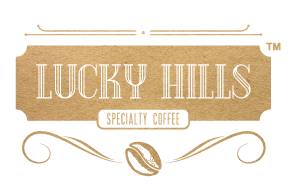Good management is not just about efficient operations; it profoundly impacts the flavor profile of coffee.
While many believe that coffee quality is determined solely by tasting, the truth is that the journey to exceptional coffee begins long before the beans are tasted.
Of course, for a coffee to be special, it needs to score above average on specific attributes ranging from roast color to the aroma of the beverage, among others. In this case, the uniformity of the beverage is also assessed, and the coffee may score negatively if the samples differ in flavor between cups.
However, achieving a high grade in this tasting goes beyond these attributes, and is directly linked to the way coffee is grown, processed and traded before getting there. Taking this into account, good management has a significant weight when it comes to coffee taste.
In this article, understand better how the best coffee taste is related to good management!
How good management can enhance coffee taste
Several management aspects come into play to ensure a tastier coffee. From production to trade, every step influences the final taste. Look:
- Growing site: the terroir, composed of soil quality, altitude and harvesting practices, is of paramount importance in defining coffee taste. These elements interact in a complex manner to influence the chemical compounds present in the beans, resulting in distinct flavor profiles that reflect the unique characteristics of the growing site.
- Roasting methods: the way coffee beans are roasted profoundly influences its taste. Management decisions about light, medium or dark roasting, for example, directly influence the sensory characteristics of the beverage, shaping everything from acidity to coffee body.
- Business practices: effective management in trade is crucial to maintain coffee taste integrity. Direct trade, for example, eliminates intermediaries, ensuring that coffee reaches roasters in its freshest and highest quality state.
- Consistency in quality: through meticulous management practices, such as direct trade partnerships and quality control measures, traders can maintain consistency in thetaste of the coffee they offer, meeting customers’ expectations.
- Sustainability: sustainable management practices not only benefit the environment, but also enrich coffe taste. Coffees produced using sustainable methods often have more complex and rich flavor profiles, due to healthier ecosystems and well-maintained soil quality.
Direct trade and coffee taste excellence
Direct trade emerges as a revolutionary model that transforms traditional coffee trade practices.
By bypassing intermediaries and establishing direct relationships between producers and buyers, direct trade ensures that the highest quality coffee reaches consumers’ cups.
Among the main benefits of the direct trade business model, we can highlight:
- Quality assurance: direct trade promotes direct communication between producers and buyers, making quality assurance easier at every stage of the coffee production process. This practical approach ensures that only the best beans, with superior flavor profiles, are selected for trade.
- Traceability: with direct trade, coffee roasters can track the journey of their beans throughout the export and import path, which provides transparency and authenticity. This traceability increases customer confidence and adds value to the business.
- Impact on the community: direct trade practices prioritize the well-being of coffee-producing communities, empowering them economically and socially. By investing in these communities, direct trade contributes to the sustainability of the coffee industry, producing exceptional flavor profiles appreciated by coffee connoisseurs.
As noted, good management is crucial to improve the flavor profile of coffee.
From production to trade, every decision impacts the tasting experience, making it essential that establishments that offer coffee on their menu prioritize efficient management strategies to promote the satisfaction of their customers and captivate the palates of demanding consumers.
Read more:
How to keep up with changes in customer behavior?
If you are looking for tastier coffee to sell in your establishment, pay attention to these tips.
Lucky Hills’ commitment to tastier coffee
At Lucky Hills, we advocate for direct trade partnerships that elevate the quality and flavor of coffee.
We are a local, American company and, through our expertise and dedication, we ensure that our partners receive only the best coffee beans, backed by expert validation and traceable processes.
Lucky Hills specialty coffee is imported directly from the South of Minas Gerais, Brazil, and locally roasted in Florida on demand, resulting in unparalleled freshness and aroma.
Talk to our consultants to unlock and elevate your brand reputation in the competitive coffee market.



